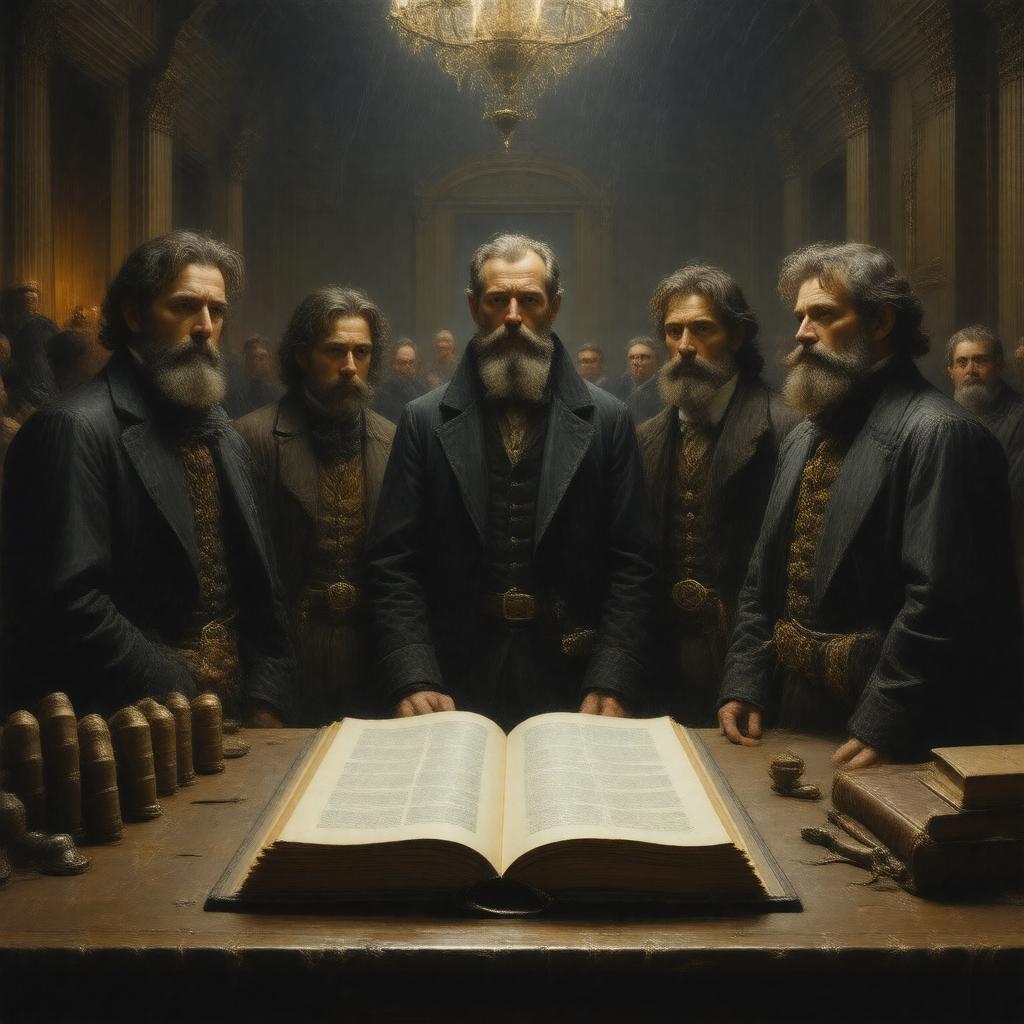Prompt
"Create an image of a 19th-century Russian family standing together in a dimly lit, ornate study, representing the themes of faith, doubt, and family from Fyodor Dostoevsky's magnum opus, 'The Brothers Karamazov'. In the center, a worn, leather-bound book lies open on a desk, with a faint image of a grand inquisitor in the background. The brothers, Alyosha, Ivan, and Dmitri, stand alongside their father, Fyodor Pavlovich Karamazov, and the illegitimate half-brother, Smerdyakov, capturing the complex relationships and moral struggles within the Karamazov family."

